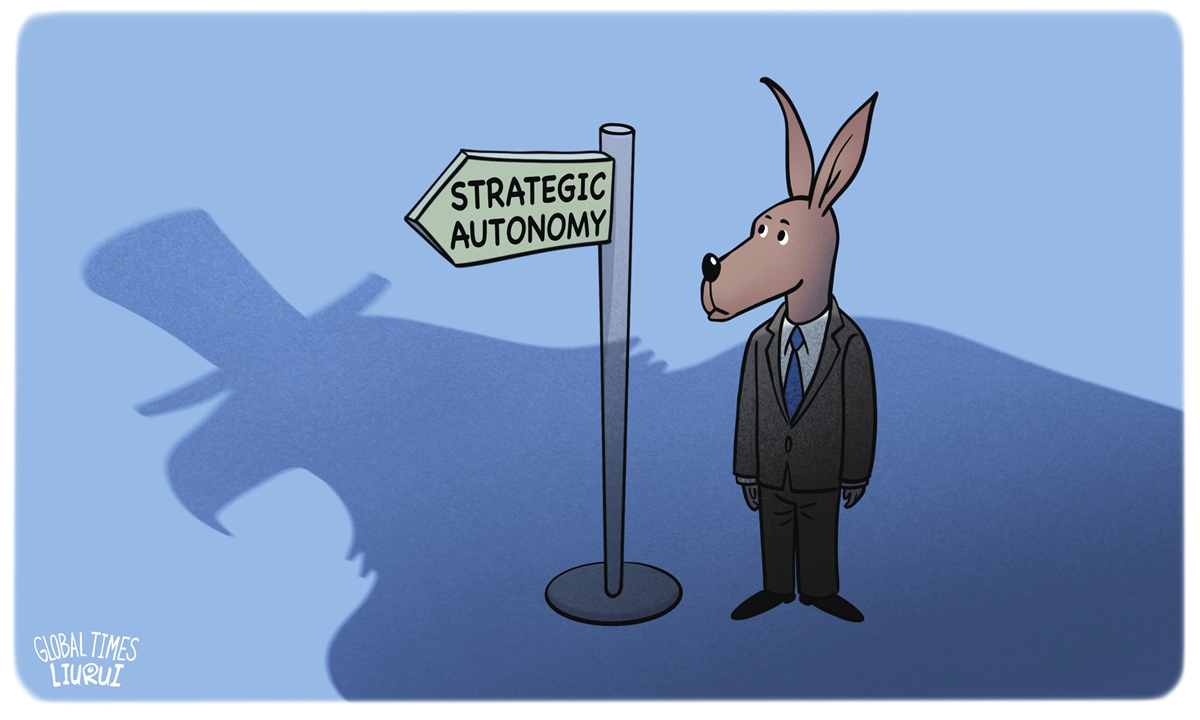
Illustration: Liu Rui/GT
After Australian Defense Minister Richard Marles made statements suggesting that Australia's territory is crucial to the great power contest between the US and China, Paul Keating, the former Australian prime minister, accused him of betraying the country, stating that the defense minister's remarks mean "ceding Australia to the US as a platform for the US and by implication, Australia, for military engagement against the Chinese state in response to a threat China is alleged to be making," the Age reported on Wednesday.
Marles made the remarks on Monday at a defense conference in Canberra. He did not directly say Australia should be involved in a China-US conflict, but in the eyes of Hugh White, a leading Australian defense analyst, what Marles said - "Australia's geography today is more relevant to great power contest than it has been" and "the geography of our national security, it lies much less along the coastline of the continent, as it does further afield" - conveyed to the US that Canberra understands how much US planning for war with China now assumes Australian support and that the country is focused on fighting alongside the US far from its shores in places like the Taiwan Straits, rather than defending the continent itself.
For a long time, some Australian politicians have been indulged in the strategic fantasy of "supporting US interests even at the cost of Australia's interests" and the nightmarish scene of "a war with China," rhetoric that often comes from Washington. Nonetheless, as they assume that Australia would play a key role in a conflict between China and the US, it risks positioning Australia as a bridgehead against China, ultimately making the country a victim in the competition between great powers.
Chen Hong, a professor and director of the Australian Studies Centre at East China Normal University, told the Global Times on Thursday that while Australia pursues security guarantee from the US, allowing itself to be used as a platform for US interests will only make Australia less secure with more uncertainties.
"For Australia which longs for predictability, certainty and strategic autonomy, blindly leaning toward an ally as unreliable as the US is an irrational move," said Chen, pointing out that the recent US review of the AUKUS deal should be enough for Australia to realize that it has always been the one to foot the heavy bill in its much-valued alliance with the US.
Hence the warnings and reminders from cool-headed Australians like Keating and White. For Keating, what is more important is Australia's ability to "make decisions in its own national interest and not in the interest of another country"; and White suggests that Australia should give Washington a plain answer of "no" regarding its involvement in war and that it should have its own way with China.
Chen from the East China Normal University believes that the Australian government and the public should heed the rational warnings from figures like Keating and White.
What Australia needs is a more independent security strategy that does not rely on any major power and is based on its own geopolitical realities. Continuing to tie its interests to those of the US is akin to dancing blindfolded on the edge of a cliff, said Chen.













